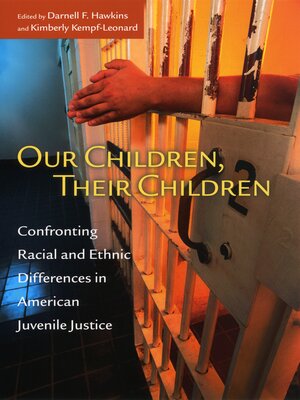Our Children, Their Children
ebook ∣ Confronting Racial and Ethnic Differences in American Juvenile Justice: Confronting Racial and Ethnic Differences in American Juvenile Justice · The John D. and Catherine T. MacArthur Foundation on Mental Health and Development, Research Network on Adolescent Development and Juvenile Justice
By Darnell F. Hawkins

Sign up to save your library
With an OverDrive account, you can save your favorite libraries for at-a-glance information about availability. Find out more about OverDrive accounts.
Find this title in Libby, the library reading app by OverDrive.



Search for a digital library with this title
Title found at these libraries:
| Library Name | Distance |
|---|---|
| Loading... |
In Our Children, Their Children, a prominent team of researchers argues that a second-rate and increasingly punitive juvenile justice system is allowed to persist because most people believe it is designed for children in other ethnic and socioeconomic groups. While public opinion, laws, and social policies that convey distinctions between "our children" and "their children" may seem to conflict with the American ideal of blind justice, they are hardly at odds with patterns of group differentiation and inequality that have characterized much of American history.
Our Children, Their Children provides a state-of-the-science examination of racial and ethnic disparities in the American juvenile justice system. Here, contributors document the precise magnitude of these disparities, seek to determine their causes, and propose potential solutions. In addition to race and ethnicity, contributors also look at the effects on juvenile justice of suburban sprawl, the impact of family and neighborhood, bias in postarrest decisions, and mental health issues. Assessing the implications of these differences for public policy initiatives and legal reforms, this volume is the first critical summary of what is known and unknown in this important area of social research.







